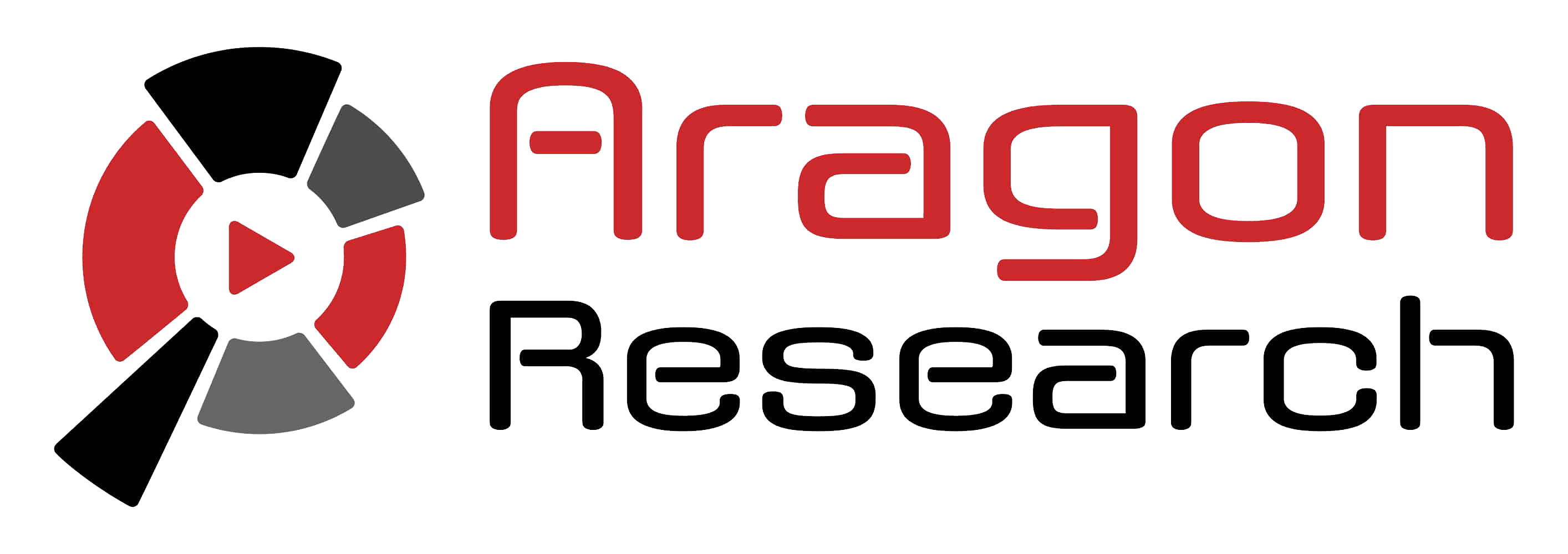 by Xenia von Wedel – SYS-CON
by Xenia von Wedel – SYS-CON
What are the benefits of RPost Cloud?
Zafar Khan, CEO of RPost: The RPost Cloud platform can permit a user, software application, service provider or developer to lease the RPost infrastructure and transform data into a product, reconcile transactions and return reports to the sender or sending system. This service costs pennies and can be done on a message-by-message or user-by-user basis.
The RPost Cloud acts as an infrastructure extension to developers’ own software platforms or to users’ existing email program. It adds legally valid proof and non-repudiation, security, encryption and compliance, legal electronic signature and authentication, and collaboration and deliverability services.
As an example, a sender or developer that routes standard email through the RPost Cloud platform for specialized processing has the benefit of that standard email being transformed into a number of products, some of which are: Registered Email message for proof of delivery, content, and time; a HIPAA-compliant encrypted email with proof of encrypted delivery; a Certified EmailTM message with sender authentication; or a contract prepared to obtain the recipient’s electronic signature.
The RPost Cloud returns enterprise security intelligence such as data analytics, evidence records, and reports, to the sender and/or sender organization in a variety of formats.
Who are your competitors?
Khan: The RPost Cloud platform is a first-of-a-kind cloud-based processing infrastructure Many elements of the RPost Cloud and the services provided are patented or patent pending. We are not aware of any direct competitors with regards to the RPost Cloud platform as a whole.
We are, however, aware of companies that attempt to compete with RPost with regards to specific services that are enabled via the RPost Cloud platform. For example, with the Registered Email® service, RPost sees Swiss Post as a competitor in Switzerland. With the email encryption service, RPost sees Zixmail as a competitor. With electronic signature services, RPost sees DocuSign as a competitor. We have found that these companies – Swiss Post, Zixcorp, and DocuSign – have made elements of RPost patented technology central to their services without permission and, as such, we have filed patent infringement actions against them.
How is the service unique?
Khan: RPost focuses on continuous innovation to ensure that its services are and remain unique in the marketplace. We are always looking for a better way to implement technology to achieve user requirements with the simplest experience possible.
The RPost Cloud platform is itself unique. We believe the RPost Cloud platform marks a new era of “Cloud Computing” where “Cloud-based” servers are operating complex processes on behalf of users that route data to these servers, with the product being the server output. The RPost Cloud is a “Cloud processing platform” where there is a Cloud-based network of servers and other infrastructure that is configured for specialized data processing. The RPost Cloud takes input data – data or messages sent to the RPost Cloud platform – processes the data in a specialized way based on the message or data content from the sender, and returns a product. The product is the data transformed in a specialized way, resulting in new data or message characteristics. This product may be sent to multiple parties (i.e. sender, sender IT organization, recipient, multiple recipients). By default, the RPost Cloud platform does not store data, but instead processes and transforms data in transit. Further, the RPost Cloud does not require any web browser or user log-in to access the specialized processing; data may be routed using a variety of protocols such as SMTP, HTTPS, or SOAP.
Are you bringing the full line of RPost services to the Cloud?
Khan: We have worked hard to first conduct major upgrades on two popular service lines -we announced our email encryption upgrade in June 2011 and our electronic signature upgrade a month later – so that the RPost Cloud platform could contain a full set of technology services in the most feature-rich form. These are broadly categorized as (1) valid proof and non-repudiation, (2) security, encryption and compliance, (3) legal electronic signature and authentication, and (4) collaboration and deliverability services. Combining all of the features within these four categories, the RPost Cloud has more than 70 processing features that can be combined to operate on data, messages, or email routed to the RPost Cloud for processing.
Who do you see as your target customers for RPost Cloud?
Khan: There are three sets of customers for the RPost Cloud. (1) Individual end users who can connect directly to the RPost Cloud platform by installing an RPost plug-in for Microsoft Outlook, BlackBerry iPad, Lotus or any of the browser-based email programs. (2) Software products and platform owners who want to extend their platform capabilities by using RPost’s new application programming interfaces to connect their end-users’ high value messages to the RPost Cloud platform for special processing. (3) Independent developers who can create their own apps that use combinations of features offered by the RPost Cloud platform.
How does RPost change the way electronic messages are processed?
Khan: RPost provides value added processing to messages based on the indications requested by the sender, sending application or content. These add characteristics to the message transport and/or the message itself to provide for better analytics, proof of transport, or to provide extra privacy, electronic signing, or other document-centric, collaborative or special reply capabilities to the message.
How is the Cloud service set up?
Khan: The RPost Cloud operates on RPost infrastructure 24 hours a day, seven days a week, with users accessing the RPost Cloud processing from all corners of the world. There is no set-up required to access or route email messages to the RPost Cloud other than choosing your preferred method of tagging email for RPost Cloud special processing. Most install RPost’s Microsoft Outlook plug-in for this or RPost’s web browser extension, both with a SEND REGISTEREDTM button acting as the trigger to route messages for RPost special processing.
Is the Cloud processing transparent to the user?
Khan: The sender can opt to route RPost messages in an ‘unmarked’ manner, so that the recipient is not aware that the message was sent for special processing. The sender will receive their Registered Receipt record by email unless they have this email record routed to an alternate destination.
What subset of messages is sent to Cloud processing?
Khan: Generally, people have a simple rule – send casual email normally; send high value email as Registered Email messages. They generally only route the email messages that have consequence if receipt is denied or content is disputed, are time-critical in nature, are too large for normal email programs, require recipient signatures on attached contracts, or need special handling for data privacy.
How are messages tagged for cloud processing?
Khan: There are a number of ways to tag a message for processing by the RPost Cloud platform. The most common are with the sender self-selecting the message to be of high value by clicking the RPost-provided “SEND REGISTERED” button that users can install into their email program. Alternatively, users can automatically set most email servers to route messages with specific content, from certain senders, or designated for delivery to certain recipients to route to the RPost Cloud for special processing.
Does RPost Cloud store messages, or do they simply pass through?
Khan: By default, the RPost Cloud does NOT store any messages. RPost uses special patented technology to provide Registered Receipt records to the sender as the ultimate record of the email transaction. With these receipts, RPost is capable of re-constructing the validated original message and attachments, WITHOUT storing any email messages.
Electronic messages have become a key corporate asset – in what ways does RPost enhance security?
Khan: RPost Cloud processing enhances security in a number of ways. RPost does this by: (1) providing the most robust legal record of correspondence, giving the sender the upper hand in any disputes regarding who said what to whom and when by email, (2) providing sender IT organizations with visibility into encryption (or other service) use policies, training gaps, and other analytics, (3) optionally encrypting email and message end-to-end, (4) increasing internal controls by permitting simpler methods for senders to obtain handwritten, mouse-scripted records of recipient signoff on message content, financial reports, documents, and contracts, (5) cleansing document metadata and/or converting attachments to PDF format en route to the recipient, and (6) minimizing risk of inadvertent reply-all use.
Since RPost Cloud entails additional processing, doesn’t that introduce additional vulnerabilities?
Khan: The additional processing by the RPost Cloud does not introduce additional vulnerabilities as (1) RPost has been in the business of securing data for ten years and, therefore, RPost makes it a priority to use best practices security in protecting the Internet environment around the RPost Cloud platform, and (2) RPost processes transactions in fractions of a second in ways that does not require RPost to store email messages.
Can a government or other large organization set up their own, private RPost Cloud?
Khan: The RPost system operates as a “Cloud-based” service with core service operations in facilities that are under the direct control of RPost on servers owned and operated by RPost. RPost does provide for customized implementations where RPost can create a secure private Cloud for certain qualified governments and enterprises. This may include combinations of local processing infrastructure, local web-based application access, and/or secure access to the RPost global infrastructure.
Why have you transformed the RPost processing networks into an open platform?
Khan: We have seen broader interest globally in software developers and service providers wanting to have access to the technologies RPost has generally offered to the marketplace as services. We have worked collaboratively with some of these service providers – like Applied Systems, the largest insurance agency management platform; Esquire’s iScrub, the most robust document metadata management platform; and BlueTie’s hosted email platform – to extend their platforms to offer services based on RPost technologies. Seeing this trend, we opted to invest significantly into developing the RPost Cloud platform that would formalize, simplify and speed up the process for these developers and providers to extend their platforms with RPost technologies. We have also created better ways for developers and providers to generate new revenues in the process.
What types of extensions and services are you looking for third-party developers to provide?
Khan: In every industry, there are software-based business management platforms. Most have some need to send legal notices and contracts for signatures, or transmit private information. These platforms can benefit significantly and rapidly extend their platforms by connecting high value outbound data streams for processing by the RPost Cloud platform. Independent software developers can innovate faster with better results by building on top of the apps that RPost has invested heavily in developing and is now opening to the developer community.
For example, consider a developer creating a physician iPhone app that does a number of things. Sometimes, that app may require encrypted transmission of messages to another party for HIPAA regulated or other data privacy requirements. The developer can, transparent to the sender and using an RPost provide application programming interface, automate these messages to transmit from the iPhone app encrypted to the RPost Cloud, which will re-package the message to route as an encrypted email message to the recipient patient or physician. The recipient sees and receives the secured message. In this example, the use of the RPost Cloud would be invisible to the sender and the recipient would only know that they received a message with appropriate data privacy respected. The sending organization IT staff would receive proof of compliance with encryption requirements for all app users.
What are their incentives?
Khan: The RPost Cloud creates an opportunity for developers and service providers to generate new recurring transactional or per-user revenue based on the amount of data they route for processing by the RPost Cloud.
They can tie their high value outbound message stream to the RPost Cloud for processing and will enjoy the benefits of RPost’s continuous innovation reflected in its unique product approach.
Further, by adding the cost savings and administrative efficiencies delivered by the RPost Cloud services to ones’ existing product cost-benefit arguments, one can change the overall ROI calculation for software products in a meaningful and positive way.
In addition to processing infrastructure and intellectual property, RPost can provide service providers and developers with:
RPost billing and collection management for third-party and developer apps
Wholesale rates per message processed
Wholesale rates per user access
Client return on investment calculators
Is there anything else you would like to add?
Khan: Although the RPost Cloud Platform is new – established in 2011 by opening up desktop software, mobile, application, and automation programmatic access to RPost’s Registered Email® technology — services based upon the Registered Email® technology have been in commercial use for nearly ten years. The Registered Email technology dates back to early patent filings in 1995 with efforts to begin commercialization of the technology described in these patents beginning in 2000.
I believe it is important for the technology community to understand that while RPost has developed technology that is recognized by the 35 patents granted in 21 countries, RPost has also invested heavily in implementing this technology in the most elegant manner. We know we must continue to innovate to have the best products on the marketplace and RPost has been and always will be a service provider with first focus on customers.
We see the RPost Cloud platform as a simple way for developers and service providers to access RPost technology and extend their platforms without all of the complexities of operating legal electronic messaging infrastructure and without the intellectual property legal complexities.
We invite the developer and software service provider community to contact us so that we can work with them in a constructive manner to provide them and their clients with greater value, without cost or complexity to getting started.
RPost has been the recipient of the 2011 World Mail Award for Security, endorsed as the top pick by the 2011 JMBM Corporate Counsel Guide for Converting Contract and Legal Notices to Electronic Delivery and the 2011 Council of Insurance Agents & Brokers’ Buyers Guide for Email Encryption. RPost services are in use in nearly every country in the world, by the U.S. Government through AT&T’s GSA schedule, within Global F500 companies, and endorsed by the most influential American bar associations.

February 19, 2026

February 12, 2026

February 06, 2026

January 16, 2026

December 10, 2025